
X is the tenth album by Klaus Schulze. It was originally released in 1978, and in 2005 was the fifth Schulze album reissued by Revisited Records.

Timewind is the fifth album by Klaus Schulze. It was originally released in 1975, and in 2006 was the twenty-second Schulze album reissued by Revisited Records. It is Schulze's first solo album to use a sequencer.
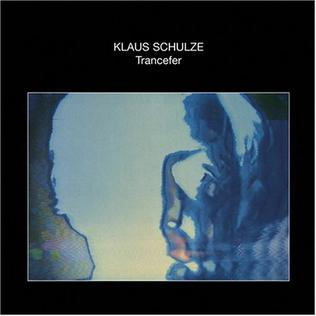
Trancefer is the fourteenth album by Klaus Schulze. It was originally released in 1981, and in 2006 was the twenty-third Schulze album reissued by Revisited Records. With the original total running time of 37 minutes and 23 seconds, it was the shortest album in Schulze's canon until the 2006 reissue doubled its running time by including alternate versions of the main tracks.

Cyborg is the second album by Klaus Schulze. It was originally released in 1973, and in 2006 was the nineteenth Schulze album reissued by Revisited Records.

Picture Music is the fourth album of electronic music by German musician Klaus Schulze. It was recorded in late 1974 and released in January 1975 on Brain Records. In 2005 this was the second Schulze album reissued by Revisited Records. This is the only Klaus Schulze solo album in which he can be heard playing a drum kit. Prior to his solo career, he was the drummer for Ash Ra Tempel; on his later albums, drummer Harald Großkopf of Wallenstein frequently contributed. Like many of his albums, this one has one long track on each side.
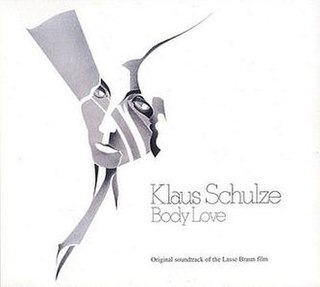
Body Love is the seventh album by Klaus Schulze. It was originally released in 1977, and in 2005 was the ninth Schulze album reissued by Revisited Records. It is the original soundtrack for the porno film of the same name directed by Lasse Braun.

Mirage is the eighth album by Klaus Schulze. It was originally released in 1977, and in 2005, was the first Schulze album reissued by Revisited Records. Mirage is subtitled "Eine elektronische Winterlandschaft" and is dedicated to Hans Dieter Schulze.

Body Love Vol. 2 is the ninth album by Klaus Schulze. It was originally released in December 1977, and in 2007 was the twenty-eighth Schulze album reissued by Revisited Records. It consists of additions to the original soundtrack from February 1977 for the porno film of the same name directed by Lasse Braun. Although generally described with the suffix Vol.2, the album's cover is printed Body Love only and its disk label states Body Love - Additions to the Original Soundtrack. The booklet for the 2007 reissue however maintains the correct title of this album is Body Love 2, as rather than being a second volume of songs from the film, the album consists almost entirely of new compositions in a similar style. The exception is "Stardancer II", which is a remixed version of "Stardancer" from the first Body Love album.
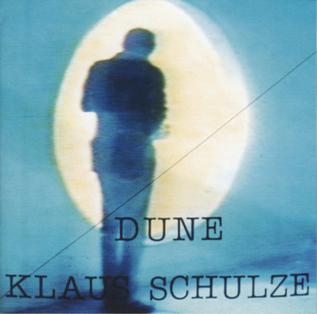
Dune is the eleventh album by Klaus Schulze. It was originally released in 1979, and in 2005 was the tenth Schulze album reissued by Revisited Records. "Shadows of Ignorance" features Arthur Brown on vocals, half-singing/half-chanting a long poem written by Schulze.
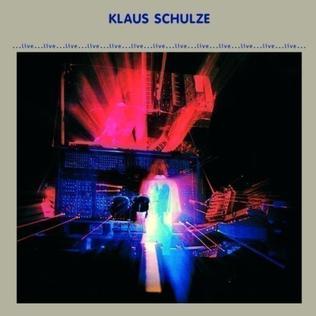
...Live... is the twelfth album by Klaus Schulze. It was originally released in 1980, and in 2007 was the twenty-sixth Schulze album reissued by Revisited Records. The album contains recordings from concerts in Berlin in 1976, and Amsterdam and Paris in 1979. The CD version of "Sense" has been extended from the original LP and now includes a lengthy introduction which did not feature in the original release. "Dymagic" includes a vocal performance by Arthur Brown, similar to the one found on Dune, the last studio album before the tour.

Dig It is the thirteenth album by Klaus Schulze. It was originally released in 1980, and in 2005 was the sixth Schulze album reissued by Revisited Records. It is Schulze's first fully digital recording. The 2005 reissue includes a bonus DVD with the video recording of the 1980 performance at Ars Electronica, which was previously released as audio on The Ultimate Edition (2000).

Dziękuję Poland Live '83 is the sixteenth album by Klaus Schulze. It was originally released in 1983, and in 2006 was the seventeenth Schulze album reissued by Revisited Records. "Katowice" is essentially a live version of "Spielglocken" from Audentity. "Lodz" is essentially a live version of "Ludwig II von Bayern" from X. "Dzien dobry!" is an alternate take of "Katowice"/"Spielglocken".
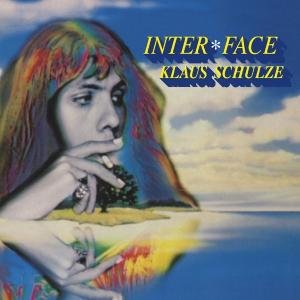
Inter*Face is the eighteenth album by Klaus Schulze. It was originally released in 1985, and in 2006 was the twentieth Schulze album reissued by Revisited Records. The two bonus tracks on the reissue were both previously released on Schulze's 25-disc CD box set Jubilee Edition (1997), which was later included on the 50-disc CD box set The Ultimate Edition (2000). However, a shorter version of "Nichtarische Arie" was included.

Dreams is the nineteenth album by Klaus Schulze. It was released in 1986, and in 2005 was the third Schulze album reissued by Revisited Records. The reissue bonus track was released early 2004 in Hambühren as a limited promo CD Ion.

En=Trance is the twentieth studio album by electronic artist Klaus Schulze. It was originally released in 1988, and in 2005 was his seventh album reissued by Revisited Records. In 2017 it was reissued again in a newly remastered version.

Miditerranean Pads is the twenty-first album by Klaus Schulze. It was originally released in 1990, and in 2005 was the twelfth Schulze album reissued by Revisited Records. This is the first of two reissues not to feature a bonus track, though the first track is extended by two minutes.

Le Moulin de Daudet is the twenty-seventh album by Klaus Schulze. It was originally released in 1994, and in 2005 was the fourth Schulze album reissued by Revisited Records. Le Moulin de Daudet was released after Schulze's Silver Edition 10-disc CD box set, technically making this album his thirty-seventh. It is the soundtrack to the film of the same name. The reissue bonus track is an excerpt from the previously released limited promo CD Ion (2004).

Dosburg Online is the thirty-third album by Klaus Schulze. It was originally released in 1997, and in 2006 was the twenty-first Schulze album reissued by Revisited Records. Dosburg Online was released after Schulze's Silver Edition and Historic Edition 10-disc CD box sets, as well as Jubilee Edition 25-disc CD box set, technically making this album his seventy-eighth. This is the second of two reissues not to feature a bonus track.
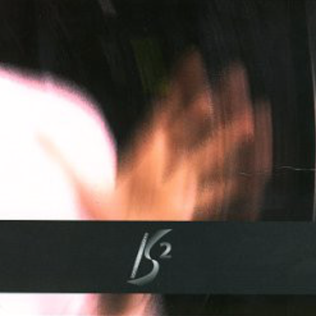
Contemporary Works II is a limited edition 5-disc CD box set released by Klaus Schulze in 2002 containing new studio material. This set was released two years after Contemporary Works I. One of the discs has been reissued in 2008 as part of the overall reissue program of Schulze back catalog by Revisited Records, the remaining four were released by MIG Music between 2016 and 2019. The first 333 copies of this set contained a bonus sixth disc.

Harald Grosskopf is a German electronic musician. He played with several Krautrock and progressive rock bands of the 1970s in Germany, and released solo music.




















